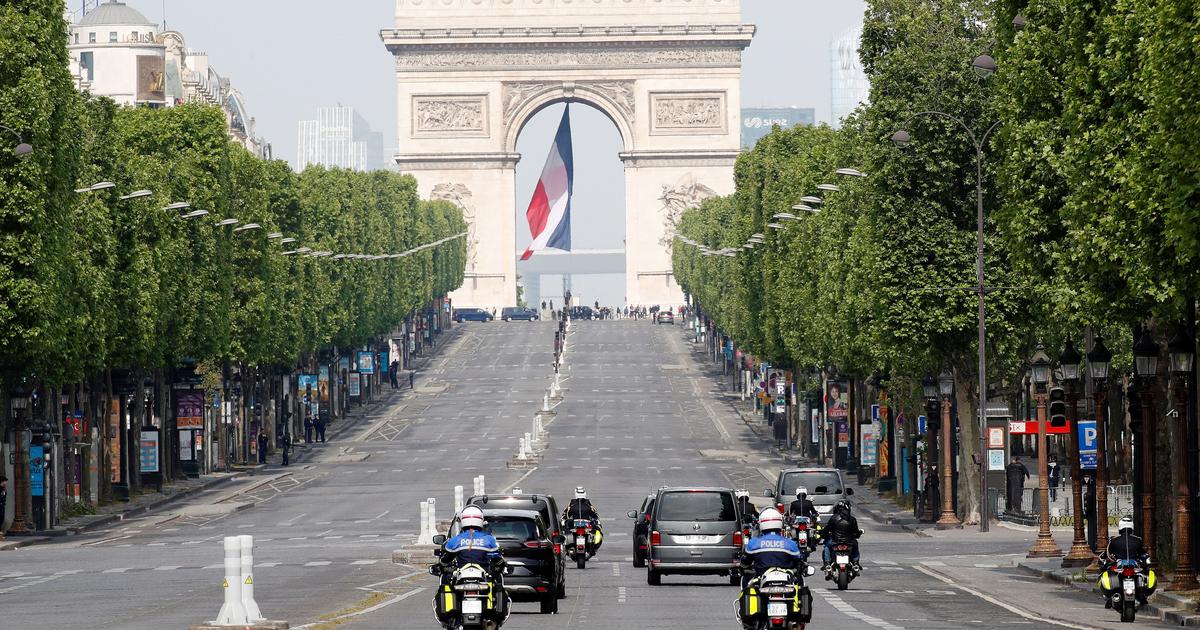A keen observer of French political life and columnist for FigaroVox, Maxime Tandonnet has published Andre Tardieu. L'incompris (Perrin, 2019) and Georges Bidault: de la Résistance à l'Algérie française (Perrin, 2022).
What is the purpose of patriotic ceremonies, especially on May 8, July 14 and November 11? They express the unity of the nation around a founding event: the capitulation of Hitler's Germany, Federation Day or victory at the end of the Great War. They represent a moment of patriotic contemplation. The popular public is not just a spectator but takes its full part in the ceremony. The ceremony manifests a link between generations, a moment of transmission of collective memory. The crowd represents the sovereign people in osmosis with their army and elected representatives, including the head of state. Thus, the unfolding of the ceremony of May 8, 2023 on the almost empty Champs Elysee, from which all public had been evacuated, took on a particularly dramatic connotation. Never has an image been more emblematic of the divide between the nation and its leaders. The people symbolically excluded from the ceremony, it became a kind of worldly ballet, above ground, celebrating not national unity or France together, but a kind of courtier inter-self at odds with the country.
" READ ALSO8-May: a commemoration under high surveillance in Paris
However, May 8, like November 11, do belong to the people in the French tradition. The Unknown Soldier, whose flame is rekindled, represents a child of the country who died on the field of honor. Both May 8 and November 11 pay tribute to the popular France who gave her life to the homeland and to the bereaved families. In truth, a patriotic ceremony without the people loses most of its meaning. The history of the twentieth century is rich in images of cheering crowds on the Champs-Élysées. The most famous is that of August 25, 1944, celebrating the Liberation of Paris, which Charles de Gaulle, in his Memoirs, compares to the sea. Since then, between this explosion of collective joy bringing together more than a million French people and the pathetic 8-May 2023, what a long way we have come! And what a contrast with the coronation ceremonies in Britain that gave rise to demonstrations of popular joy!
The novelty of 2023 is due to the attitude of the leaders in power which consists in distancing the public from the ceremony to protect themselves from its jeers or "casserolades".
Maxime Tandonnet
Of course, the temptation will be great to blame this fiasco on the desacralization of institutions, a decay and a growing nihilism of a society that no longer respects national emblems. Throughout the history of the twentieth century, in fact, patriotic ceremonies have rarely been the occasion of trouble or heckling. Some incidents have remained in the collective memory, such as this insult hurled at General de Gaulle on November 11, 1962: "retired!". But all this remained punctual. The habit of whistling and booing heads of state during patriotic ceremonies dates back about ten years, notably to the 14-July and 11-November 2013 of François Hollande.
The novelty of 2023 is due to the attitude of the leaders in power which consists in distancing the public from the ceremony to protect themselves from its jeers or "casserolades". This attitude underlines the absolute priority given to preserving the personal image of those in power. The imperative is to avoid the risk of letting it be soiled by signs of popular anger. So why this obsession with appearance? The ruling class has (long-standing) failed in all sectors of public life: declining educational standards, exploding debt, rising violence, inflation and poverty, unemployment and deindustrialization, deteriorating hospital services, etc. The cult of the personal image is the screen of a collective disaster: the magnificence of the leader is supposed to cover the powerlessness to solve the problems, sufferings or anxieties of society. That is why, in this logic, it is so crucial to preserve it from any dirt.
The chosen parade – that of confined ceremonies – only amplifies the country's ills, aggravating to the point of vertigo the impression of the ruling elites' contempt for the people, i.e. the democratic divide.
Maxime Tandonnet
The cordon sanitaire system (between the ruling sphere and the people) that was imposed on May 8, 2023, is also the subject of a strange acceptance in the so-called "above" France, or politico-media. Discordant voices challenging the sidelining of the people (in Paris as in Lyon) have been rare and discreet on the national media. This allegiance or resignation contrasts with the indignation expressed on social networks. Two years of health crisis, lockdowns and curfews have trivialized the use of coercion against the population of this country. One can imagine the tremendous outcry of several weeks that such practices would have triggered in the past (for example under the mandate of Nicolas Sarkozy!). This addiction is particularly worrying for the future of freedoms in France.
The cordon sanitaire policy is a sign of immense unease. The breaks scare political leaders. Even if they are made by a handful of individuals they enjoy widespread popular sympathy according to all the polls. They express an anger that has crystallized on the totem of the "64 years" about the pension reform but whose reasons are older and more complex. The chosen parade – that of confined ceremonies – only amplifies the country's ills, aggravating to the point of vertigo the impression of the ruling elites' contempt for the people, i.e. the democratic divide. The political power gives signs of fragility by revealing its phobia of casserolades – signs that can only encourage the continuation of the movement. One question is obvious: how to last four years in such conditions?

